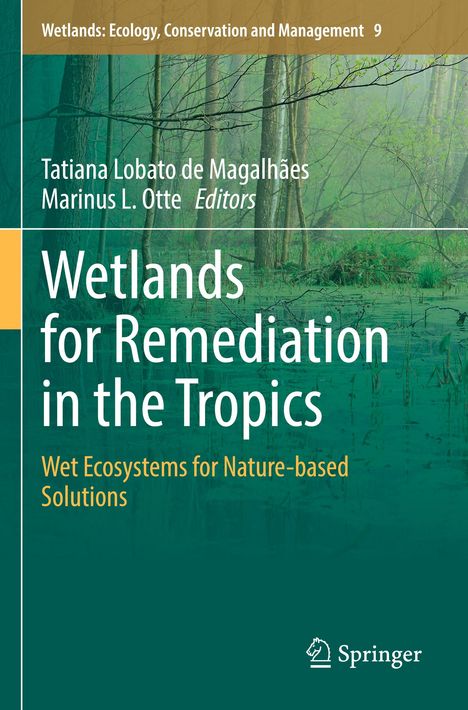Wetlands for Remediation in the Tropics
Wetlands for Remediation in the Tropics
Buch
- Wet Ecosystems for Nature-based Solutions
- Herausgeber: Marinus L. Otte, Tatiana Lobato de Magalhães
- Springer International Publishing, 01/2024
- Einband: Kartoniert / Broschiert, Paperback
- Sprache: Englisch
- ISBN-13: 9783031236679
- Bestellnummer: 11745961
- Umfang: 228 Seiten
- Nummer der Auflage: 24001
- Auflage: 1st ed. 2023
- Gewicht: 394 g
- Maße: 235 x 155 mm
- Stärke: 12 mm
- Erscheinungstermin: 27.1.2024
- Serie: Wetlands: Ecology, Conservation and Management - Band 9
Achtung: Artikel ist nicht in deutscher Sprache!
Weitere Ausgaben von Wetlands for Remediation in the Tropics
Klappentext
This edited volume provides a review of remediation approaches utilizing aquatic and wetland macrophytes in the Tropics. This form of phytotechnology has exceptional potential as a sustainable nature-based solution, but that potential is not commonly utilized in the Tropics. Constructed wetlands for improvement of water quality are cost-effective, offering affordable solutions for remediation in warm and tropical regions worldwide. The robustness, simplicity, and reliability of treatment wetlands provide efficient long-term operation.Wetlands for Remediation in the Tropics covers theory, provides case studies, and identifies gaps in our current understanding. It highlights why the Tropics differ from temperate regions in this context, particularly concerning differences in climate and species diversity and abundance. Urban, rural, and industrial examples are discussed across 11 chapters. These nature-based solutions, including the concept of Sponge City ,can be applied to tropical areas worldwide and incorporated particularly in highly urbanized regions.
The authors, from Argentina, Australia, Brazil, Canada, Colombia, the USA, the Netherlands, Mexico, Pakistan, and Taiwan, all have substantial research experience using wetlands for remediation.
The topic of this book is relevant not only to scholars and academics but also to practitioners and government officials from developing countries, where scarce resources and a lack of a qualified workforce are common, but large differences exist in history, culture, regulations, climate, water fluctuations, and vegetation. Although ideas based on experiences from temperate regions can be applied, the Tropics require distinct approaches to developing constructed wetlands for remediation.

Wetlands for Remediation in the Tropics
EUR 186,19*

